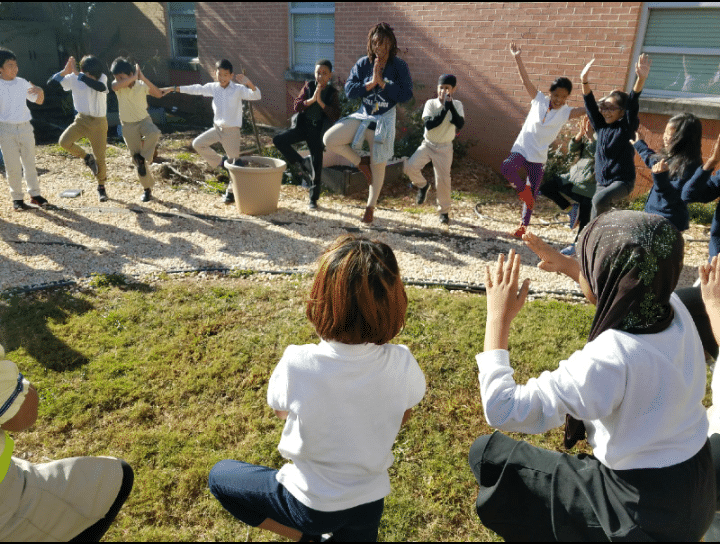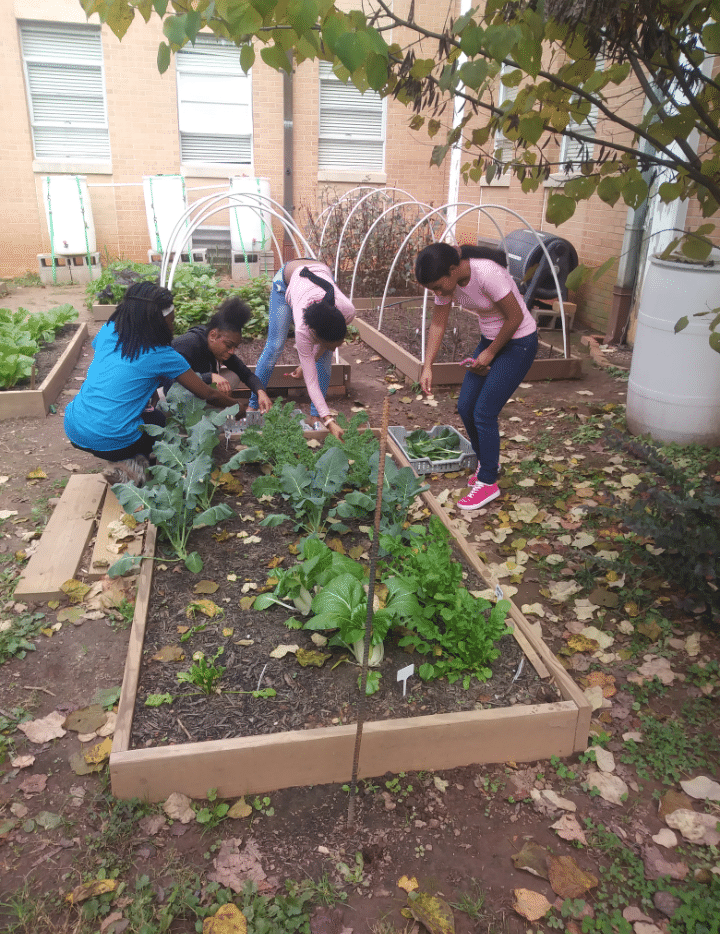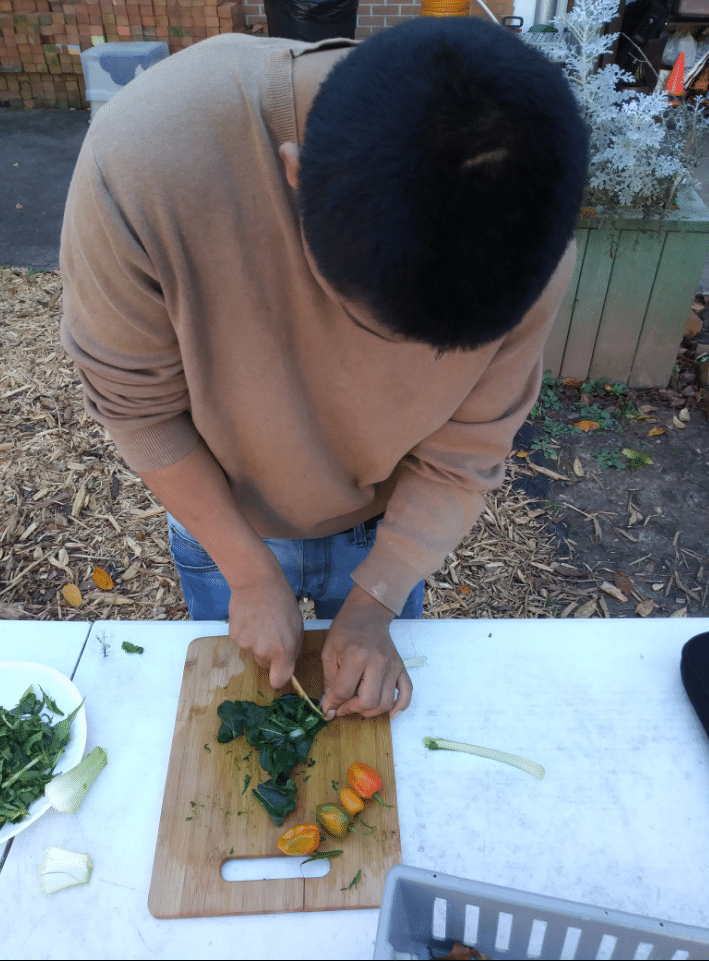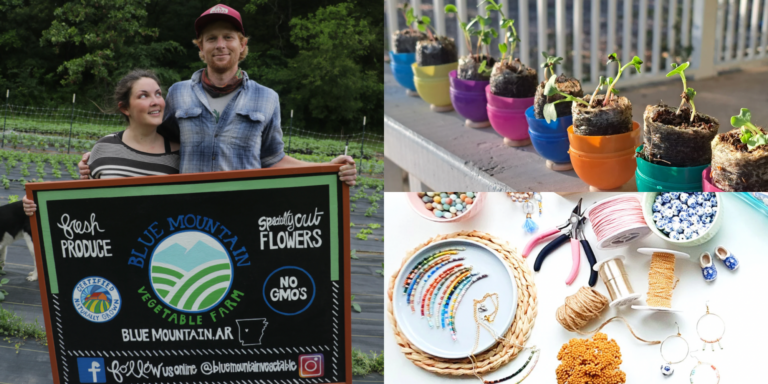The Garden as a Safe Space
Healing occurs through every aspect of gardening.
Healing occurs through every aspect of gardening.

This post was originally written by Zashe Cockett-Demings, FoodCorps GA ’18.
When I first started my FoodCorps journey, I had no idea what to expect. I was eager, and a tad bit terrified to teach students (especially high school students) the importance of agriculture as not just a method of food cultivation, but also as a source of healing.
A couple of years ago I stumbled into gardening, and it was love at first sight. At the time, I was battling with anxiety and depression and was searching for an outlet to occupy my mind. I tried everything from yoga to biking to rock climbing, you name it. However, it was within the soil that I found true solace.
What many don’t know is that planting seeds opens up the gateway to self-acceptance, self-care, and self-love, while simultaneously occupying one’s mind. It is the therapy hidden behind every action geared towards crop cultivation that aids in an individual’s overall wellbeing. With this in mind, it has been my mission to guide students back to the earth for healing. Healing occurs through every aspect of gardening. There’s a natural meditation that happens when tilling the soil, weeding, watering, and planting. This alone has the power to transform lives! Every herb sniffed, every vegetable harvested, even putting your hands in the soil releases endorphins, the happy chemical in your brain that boosts your mood, allowing the perception of yourself and the world around you to shift.

Since the beginning of the school year, I was given the opportunity to work with a group of students facing trauma, anxiety, depression, ADD, ADHD, and/or behavioral issues once a week. The main objective is to provide a support system for young people of color to grow and heal in the garden. This is usually done through garden-based activities which include garden maintenance, cooking demonstrations, yoga, and herbal medicine. At first, it was a bit of a struggle because most of the students were more concerned about not getting their clothes dirty than gardening. However, now they are leading garden tours, EATING the food in the garden, and hauling wheelbarrows full of compost in and around the school without even having to be told! It was a long journey to get to this point, but it is priceless to see so much growth!
I specifically remember one student who I had been serving with for about a month. He was leading a garden tour for a couple of new students who had been given the option to work in the garden as an alternative to in school suspension, and as he led these students to the raised bed full of peanuts, he said, “At first I was just like you guys, I didn’t want to be out here. Now I come whenever I get a chance. It’s relaxing, especially when you get mad or stressed out. You know you have somewhere to go.” Thinking about what he said still makes me smile and is a reminder that every student has potential to grow no matter what the circumstances or perception.

A few weeks ago, I gave the students a poem by one of my favorite poets, Rupi Kaur. It reads:
This is the recipe of life said my mother as she held me in her arms as I wept think of all those flowers you plant in the garden each year they will teach you that people too must wilt fall root rise in order to bloom. (1-12)
-Rupi Kaur
Before I could explain the activity, one of my students looked at me with the biggest grin and said, “Mrs. Z, this is so true. Life is like this garden. We weed out experiences, circumstances, even people and things that do no good. It’s hard, but we push through because we know something better is coming. Life is just a bunch of seasons.”
To be completely honest, many times, I don’t know what I’m doing or if what I’m doing is making enough of an impact, but in moments like these, I know with a certainty and wholeheartedly that garden education is bigger than us. It has the power to change the future generation of leaders so they are able to see just how much they can achieve. Even now, when I work with these students, I see parts of myself at their age, and that connection is enough to fight even harder to implement garden education in every class, in every school, and in every country.

Our 2024 Child Nutrition Policy Year in Review

9 Thoughtful Holiday Gifts Made by FoodCorps Alumni

The Policy Brief, Fall 2024: After the Election